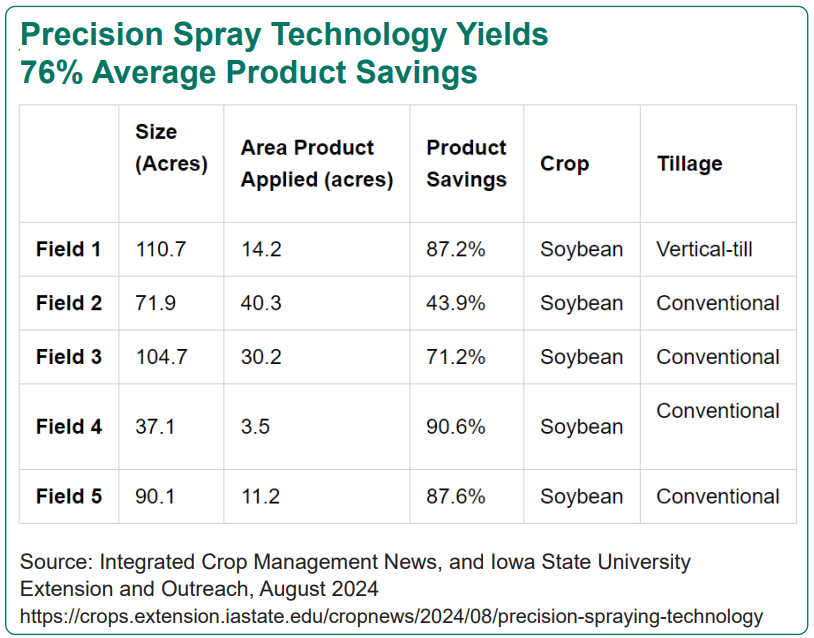Precision Agriculture: A Tool for Conservation and Sustainability
__primary.png?v=1731445715)
In recent years, precision agriculture has become a promising approach for improving efficiency and supporting conservation. For landowners, managing large landscapes involves much more than just farming; it requires informed decision-making to balance profitability with environmental responsibility. By using technology—like GPS, drones, and data analytics—landowners can enhance the way they manage their property, ensuring sustainable use of resources and safeguarding natural ecosystems.
What is Precision Agriculture?
Precision agriculture involves the use of technology to monitor and manage land at a detailed level. Tools such as GPS mapping, drones, and soil sampling methods can help landowners oversee the condition of their land in real time. While these technologies are available, it’s essential to note that adoption varies across regions and farms.
For instance, GPS mapping is widely used in planting, spraying, fertilizer application, and yield tracking. It helps identify areas within a farm that may benefit from improvements, often revealing patterns related to water distribution or soil type. This tool has been instrumental in guiding landowners on necessary interventions without applying unnecessary resources.
Drone technology offers a more visual way to monitor land. Crop scouting technology has been developed for drones that can take an image of a field and identify the plant population, weed pressures, or fertility concerns. This provides landowners with an overhead view of their property, and ground verification is used before treatments are applied to a field. We also find drones valuable for assessing project progress or capturing before and-after images. Specialized spray drones, on the other hand, are emerging and are typically focused on fields around housing developments, or in areas that are not practical for sprayers or airplanes.
Conservation Benefits for Landowners
There are several environmental benefits of precision agriculture that can help support long-term conservation goals. Here’s how precision technology can contribute to a more sustainable approach to land management:
Water Efficiency: Precision irrigation systems can help landowners apply water more accurately when available. Monitoring soil moisture through soil sampling or probes can help prevent over-irrigation, protecting water resources and reducing erosion.
Reduced Chemical Use: While the technology for “see and spray” applications is new and not widely adopted, the concept highlights how targeting chemicals only where necessary can reduce environmental impact. With careful application of fertilizers and herbicides through variable rate or see and spray technologies, landowners can decrease runoff, preserving nearby water sources and enhancing soil health.
Soil Health Monitoring: Soil health is commonly assessed through periodic soil sampling, which is used to inform fertilization decisions. This method provides insights into nutrient needs, pH and soil organic matter. We can then apply fertilizer in areas that need it most while also maintaining areas that are testing high in nutrients. Other soil health monitoring includes aggregate stability testing, water infiltration, and soil respiration. There are many other tests that can be done depending on your area of concern. Talking with an conservation agronomist can help decide what may fit for your long term decisions.
Planting Precision: Precision planting technology also aids conservation by supporting no-till and cover crop strategies. Using equipment with appropriate downforce and row openers makes it easier to adopt these practices, leading to better land conservation and resilience.
Financial and Environmental Gains for Landowners
Precision agriculture offers landowners a pathway to blend economic benefits with environmental stewardship. By optimizing inputs like water and fertilizers, they can lower operational costs while improving land health and productivity. Programs and incentives for sustainable management practices add financial appeal to adopting precision technology, making it part of a resilient land management strategy.
At Hertz, we utilize precision agriculture technology to help our clients make confident and informed decisions about their land. Our goal is to ensure that every acre is managed sustainably and efficiently, providing both economic and environmental benefits for the future. If you would like to talk with a farmland professional about your specific situation, you can reach out via 800-593-5263 or email at contact@hertz.ag.











